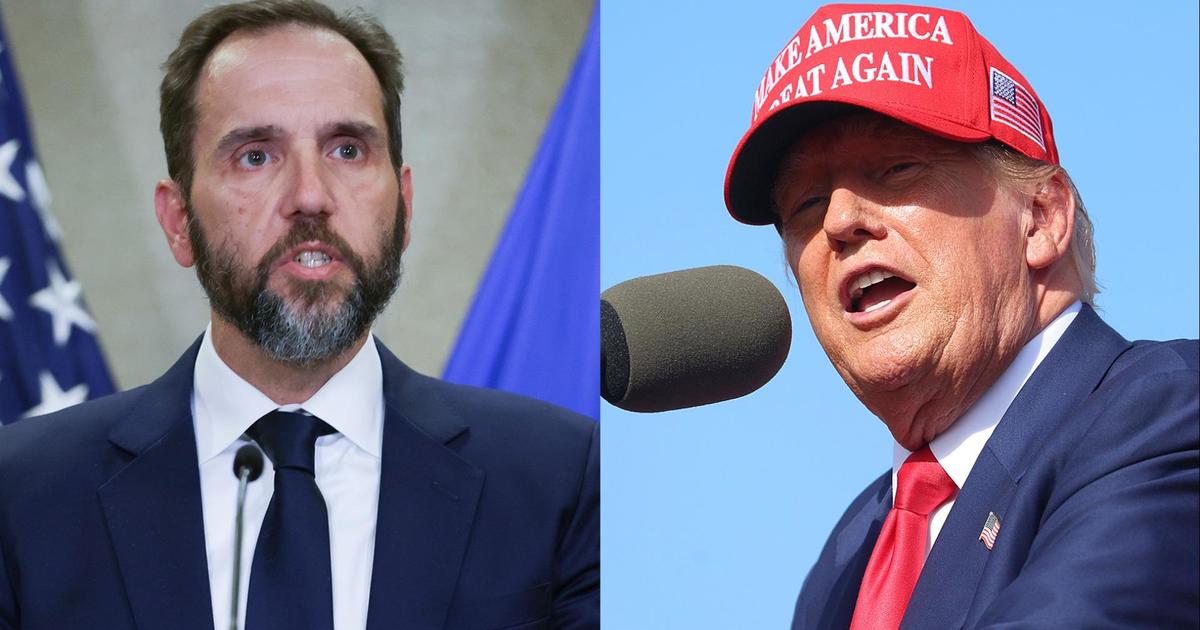Special counsel Jack Smith is not backing down in his pursuit of justice against former President Donald Trump. In a bold move, Smith urged an appeals court to revive the classified documents case against Trump, arguing that the lower court’s decision to dismiss the charges was a deviation from legal precedent and failed to consider the historical significance of the case.
Smith’s argument was laid out in a detailed initial brief submitted to the federal appeals court in Atlanta. The brief defended his appointment as lawful and refuted U.S. District Judge Aileen Cannon’s decision to throw out the charges against Trump, his aide Walt Nauta, and Mar-a-Lago property manager Carlos de Oliveira. Cannon had ruled in July that Smith’s appointment as special counsel violated the Constitution’s Appointments Clause, leading to the dismissal of the indictment.
However, Smith and his team were quick to challenge Cannon’s ruling, citing prior court decisions, historical context, and congressional endorsement of the practice of appointing special counsels. They emphasized that the attorney general had validly appointed Smith as special counsel, and the funding for his office was in compliance with the law. The prosecutors argued that Cannon’s decision went against established Supreme Court precedent and failed to acknowledge the longstanding tradition of attorney general appointments of special counsels.
In their filing, Smith’s team pointed to the 1974 Supreme Court ruling in United States v. Nixon as a critical precedent that solidified the attorney general’s appointment authority. The case, which involved President Richard Nixon’s compliance with a special prosecutor’s subpoena in the Watergate scandal, set a clear precedent for the appointment of special counsels by the attorney general.
The core of the documents case against Trump revolved around allegations of mishandling classified documents after leaving office in January 2021. Federal investigators had recovered approximately 300 sensitive records from Trump’s Mar-a-Lago property in 2022, with over 100 documents seized during an FBI search of the property in August of that year. The charges against Trump, Nauta, and De Oliveira included unlawful retention of national defense information and obstruction of the Justice Department’s investigation, to which the defendants pleaded not guilty.
Trump had vigorously contested the charges, seeking to have them dismissed on various grounds, including the legality of Smith’s appointment. Cannon’s ruling in favor of Trump’s motion to dismiss the charges was met with swift opposition from Smith, who vowed to appeal the decision to the U.S. Court of Appeals for the 11th Circuit. The contentious issue of the constitutionality of Smith’s appointment was expected to escalate to the Supreme Court for further resolution.
The special counsel’s argument in defense of Smith’s appointment was rooted in historical and legal precedents, with a focus on the implications of Cannon’s ruling on past appointments of Justice Department and Executive Branch officials. The filing warned that upholding Cannon’s decision could cast doubt on a wide range of executive branch appointments and undermine the authority of the attorney general in appointing special counsels.
The legal battle surrounding Smith’s appointment was further complicated by Justice Clarence Thomas’s concurring opinion in a separate case involving Trump. Thomas questioned whether Smith’s office was “established by law” and called for a thorough examination of the appointment’s legitimacy before proceeding with the trial. This added another layer of complexity to the ongoing legal saga between Smith and Trump.
Smith’s appointment as special counsel in 2022 was part of overseeing two federal investigations into Trump’s post-presidential conduct, including the handling of sensitive government records and alleged efforts to subvert the transfer of power after the 2020 election. Despite facing setbacks in his cases against Trump, Smith remained steadfast in his pursuit of justice, navigating legal challenges and constitutional scrutiny along the way.
The legal wrangling over the documents case, the delay in the 2020 election case, and the looming appeals court proceedings created a complex legal landscape that ultimately delayed any potential trial for Trump before the upcoming election. As the legal drama unfolded, the fate of the charges against Trump remained uncertain, with both sides preparing for a protracted legal battle that could shape the future of presidential accountability and the authority of special counsels in the justice system.









